Search results
Projects
The Future of Museum Audiences II
Museum Engagement, Data and Older Audiences
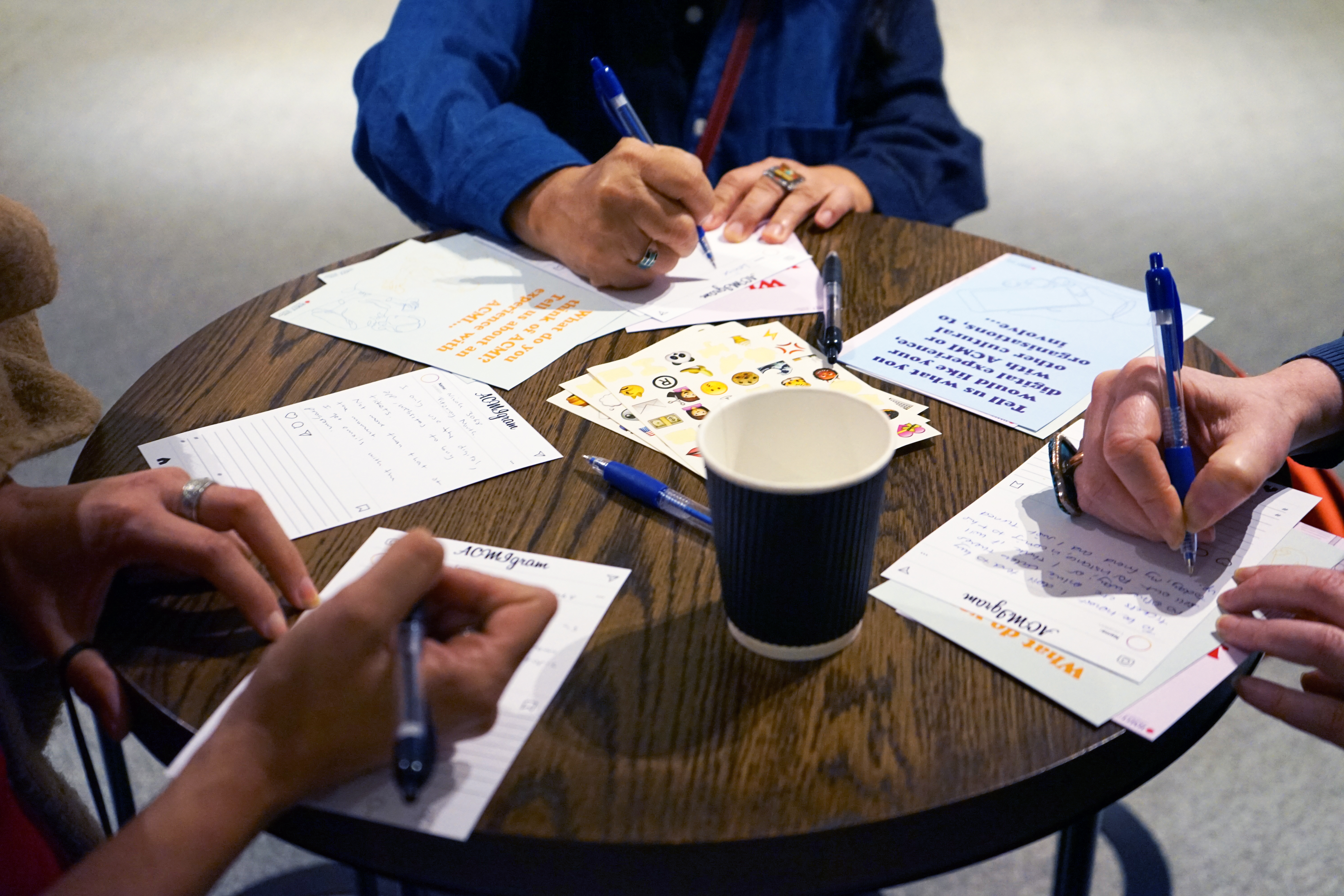
Building on Phase 1, this project specifically sought to identify and develop socially thick understandings of the (digital and non-digital) experiences and potential opportunities for older adults in the museum sector.
Using a series of postcards aimed at discursive elaboration, we invited audiences to share cups of tea and biscuits as they wrote and discussed their responses. We engaged these audiences to ethnographically and creatively reflect upon how they view the museum as an institution, as a place for belonging, and what they would like their digital (and non-digital) experiences with the museum to involve.
If you would like to get involved with this project, fill out the form below or reach out to project leaders via the contact info provided alongside each bio.
People
Larissa Hjorth
Distinguished Professor and Director, Design and Creative Practice
School: Enabling Capability Platforms
Larissa Hjorth is a digital ethnographer, artist, Distinguished Professor and director of the Design & Creative Practice ECP platform at RMIT University. With Professor Heather Horst, she co-founded the Digital Ethnography Research Centre (DERC). Previously, Hjorth was Deputy Dean, Research & Innovation, in the School of Media & Communication (2013−2016). Hjorth served on the inaugural Australian Research Council (ARC) Engagement & Impact Pilot study assessment panel for humanities and creative practice.
Hjorth studies the socio-cultural dimensions of mobile media and play practices in the Asia-Pacific region with an emphasis on interdisciplinary, collaborative and cross-cultural approaches. She has published a dozen co-authored books, edited over a dozen Handbooks/Companions and has over 40 journal articles.
More recently, Hjorth’s work has become concerned with how we can bring creative, social and design solutions to the growing ageing populations and, in turn, how we might consider scenarios of what it means to die well. She is also studying how our “more-than-human” companions can teach us about new media in everyday life. Hjorth’s last book, Haunting Hands (Oxford Uni Press) looked at how mobile media is being deployed in situations of grief and trauma, her previous book explored how art practice can teach us new acumen into the climate change debate.
Hjorth’s books include Haunting Hands (with Cumiskey 2017), Screen Ecologies (with Pink, Sharp & Williams 2016), Digital Ethnography (Pink et al. 2016) Mobile Media in the Asia-Pacific (2009), Games & Gaming (2010), Online@AsiaPacific (with Arnold 2013), Understanding Social Media (with Hinton 2013), and Gaming in Locative, Social and Mobile Media (with Richardson 2014).
Hugh Davies
Postdoctoral Research Fellow
School: Games
Hugh Davies is an artist, curator and researcher of games and play. His practice explores histories of media devices and cultures of games in the Asia Pacific Region. Awarded a PhD in Art, Design and Architecture from Monash University in 2014, Hugh’s studies in game cultures have been supported with fellowships from Tokyo Art and Space, M+ Museum of Visual Culture and the Hong Kong Design Trust. Hugh is currently a postdoctoral research fellow at RMIT in Melbourne, Australia.
Jacina Leong
PhD candidate
School: Media and Communication
Jacina Leong is an artist-curator and PhD candidate in the School of Media and Communications, RMIT. Her research explores critical-creative and careful curatorial approaches to social innovation practices by museums and galleries.
Over the past decade, she has worked in hybrid new media spaces, universities, national and international festivals, regional museums and galleries, libraries and schools — to vision and deliver a diverse range of trans-disciplinary engagement programs, via highly collaborative, experimental and site-responsive processes. Most recently, Jacina was curator for Robotronica, project lead and founding member of the Guerrilla Knowledge Unit, guest facilitator of the Future Innovators Summit (Ars Electronica Tokyo Initiative), and co-curator of the provocation, Curating In The Age of Automation (RMIT & Ritsumeikan University, Kyoto).
From 2012 to 2017, Jacina worked at The Cube (QUT), establishing the inaugural STEAM engagement program for school and university students, educators and pre-service teachers. This program involved key collaborations with local, national and international organisations including Ars Electronica, LEGO Education, and Brisbane City Council. She has also worked in public program development at the Ipswich Art Gallery, collaborative learning strategy in universities, gallery management at Jan Murphy Gallery, and was advisor to the inaugural Make Nice at VIVID Festival.
Gretchen Coombs
Post Doctoral Research Fellow
School: Design and Creative Practice
Gretchen Coombs is a Post Doctoral Research Fellow in the Design & Creative Practice Enabling Capability Platform at RMIT. She researches socially engaged art practices in the US, the UK and Australia, with a particular focus on how they are practiced in urban contexts. She’s a core member of the Cultural Value and Impact Network (CVIN) and contributes to Creative Care in the School of Art. Gretchen has a PhD in social and cultural anthropology and a MA in visual criticism: her writing uses a combination of ethnographic methods and visual analysis. She is a co-author of Creative Practice Ethnographies (Rowan & Littlefield 2019) and her monograph, The Lure of the Social: Encounters with Contemporary Artists (Intellect 2021 ) is an experimental ethnography about contemporary artists working at the intersection of art, aesthetics, and politics.
Alone Together
Understanding the experiences of older people from culturally and linguistic diverse community backgrounds during COVID-19
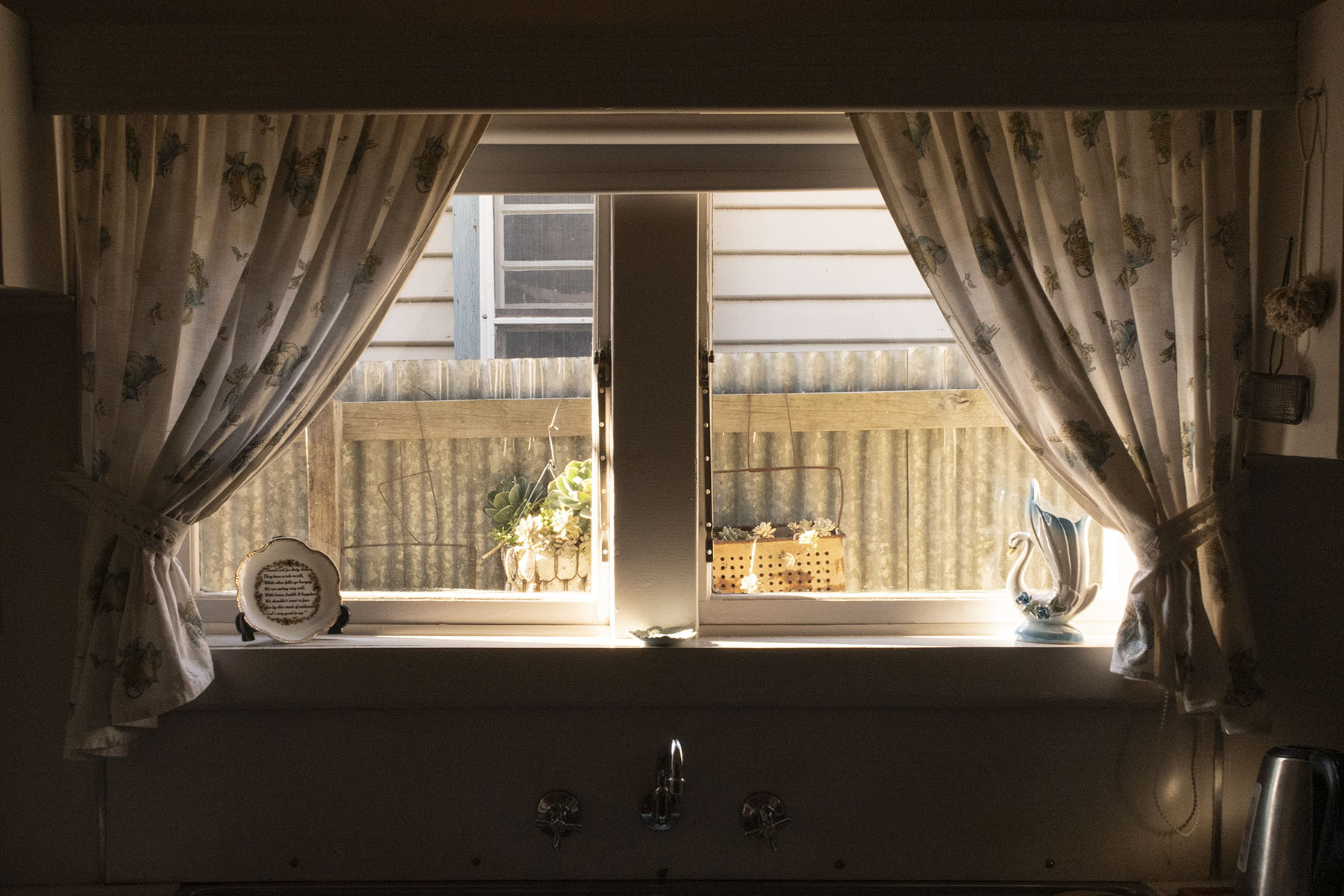
The COVID-19 pandemic has impacted everybody, but we know that its impact has been worse for older people who live independently. We also know that if you come from other countries or if English is your second language your social networks can sometimes be further away and physical distancing and lockdowns can make you feel isolated.
As part of the Alone Together project we are inviting older people from culturally and linguistic diverse communities to talk with one of our research team. We would like to know how COVID-19 has impacted your everyday life; how you are coping with these changes; and what type of services have been useful.
These conversations will help us to understand how to provide better support to older people from these communities in the future.
Research team: Dr Ruth De Souza (RMIT University); Distinguished Professor Larissa Hjorth (RMIT University); Ms Maria Dimopoulos (Special Adviser, Multicultural Communities, Department of Justice & Community Safety); Associate Professor Bianca Brijnath (NARI); Ms Deidre Ellem (Australian Digital Health Agency (ADHA) Consumer –Collaborative Pairs Program); Dr Barbara Barbosa Neves (Monash University); Ms Kate Renzenbrink (Bendigo Health and Clinical Reference Lead for the Australian Digital Health Agency (ADHA) and Collaborative Pairs Program; Dr Jenny Waycott (University of Melbourne); Dr Juan Sanin (RMIT University).
If you would like to get involved with this project, fill out the form below or reach out to project leaders via the contact info provided alongside each bio.
People
Ruth De Souza
VC Research Fellow
School: School of Art
Dr Ruth De Souza (FACN) is a Vice-Chancellor’s Fellow at RMIT, based in the School of Art and DCP Research Platform. She is a nurse, academic and a community-engaged researcher in gender, race, health and digital technologies. Ruth’s Fellowship will engage health professionals in finding new ways to understand, co-design and implement sustainable cultural safety initiatives in a range of health contexts in response to health inequities.
Prior to moving to Australia in 2013, Ruth worked at AUT University where she taught in the School of Nursing, led the Bachelor of Health Promotion, and was a Senior Research Fellow at the Centre for Asian and Migrant Health Research. Since her arrival in Australia, Ruth has undertaken a wide range of roles, including leading an undergraduate nursing program at Monash University’s Berwick campus; spearheading a unique community-engaged joint research appointment with North Richmond Community Health exploring how wearables and other digital technologies are perceived by people from culturally and linguistically different backgrounds and co-ordinating an interdisciplinary Data Systems and Society Research Network across the University of Melbourne. Ruth has also investigated the applicability of cultural safety in Australia, working closely with The Congress of Aboriginal and Torres Strait Islander Nurses and Midwives (CATSINaM), presenting at their National Professional Development Conferences and delivering training on cultural safety. She has also undertaken a two-year cultural safety project with cohealth (a not-for-profit community health organisation) and Our Watch who work for the primary prevention of violence against women and their children.
Care Futures Beyond Data
Co-creative explorations into new and emerging care services and technologies in Japan.
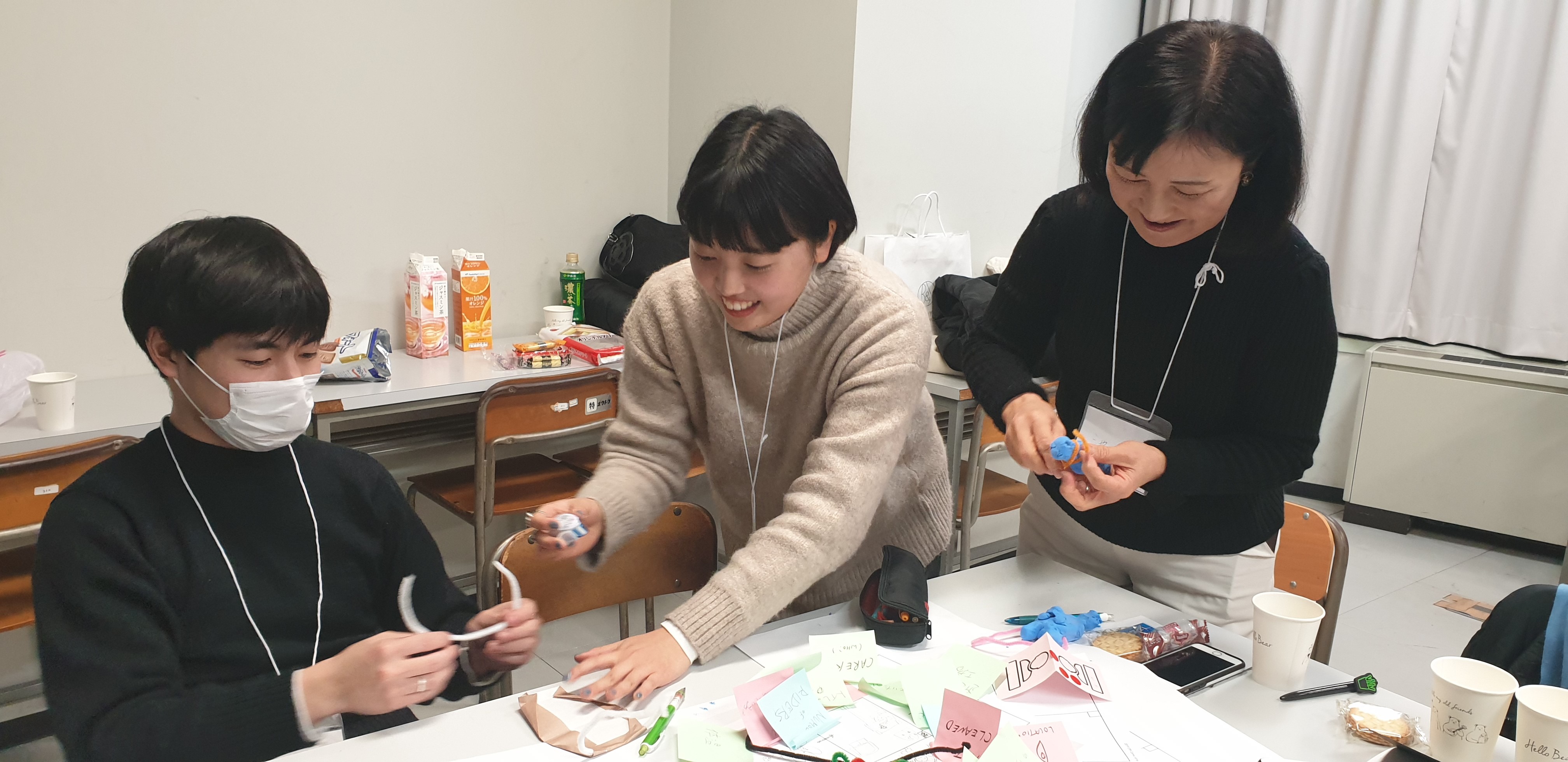
This project investigates the perceptions, practices, and aspirations around emerging care systems, especially those using electronic health records and big data, among the members of public and professionals in related fields in Japan. The project employs creative methods to generate nuanced insights into current dynamics and engage different stakeholders to imagine future cyberphysical systems of care that are meaningful to local contexts.
This project questions how we might understand and design cyberphysical systems for health care in Japan particularly in the context of the introduction of the Next Generation Medical Infrastructure law, making available medical big data to be used anonymously for research purposes across sectors.
This transdisciplinary and co-creative project aims to:
1) Investigate how healthcare technologies are understood and experienced, and how its impacts are imagined by members of the public and professionals, including perceived benefits and concerns
2) Co-create different futures of cyberphysical systems for care
3) Engage and raise awareness of such systems and their impacts among different stakeholders.
To achieve this, it employs ethnographic and participatory methods involving different members of public and healthcare professionals in Tokyo and Kyoto.
Find out more about the Care-Full Design Lab
If you would like to get involved with this project, fill out the form below or reach out to project leaders via the contact info provided alongside each bio.
People
Jaz Hee-jeong Choi
Vice-Chancellor’s Senior Research Fellow
School: Design and Social Context
Dr Jaz Hee-jeong Choi is a Vice-Chancellor’s Senior Research Fellow at the Digital Ethnography Research Centre at RMIT. Previously, she was a Founding Member and the Director of the QUT Urban Informatics Research Lab, a transdisciplinary research group exploring and designing at the intersection of people, places, and technologies. She also founded the SIGCHI FoodCHI Network.
She is an advocate for transdisciplinary research, carefully balancing creativity and criticality. Her approach to urban sustainability recognises ‘play’ as the core of transformative interactions in cities as complex techno-social networks. She builds on this to explore how various forms of digital and playful experiences are designed and evolve in different cultural contexts. Her current research explores designing with and for care for liveable and equitable urban futures across three inter-related domains: wellbeing and ageing; impactful research methods, and; co-creative urban transformation.
She has collaborated with leading international researchers, published in books and journals across various disciplines, and given invited talks at major international conferences including the inaugural Global Social Economy Forum in 2013 and the opening keynote at the 2010 UNESCO Creative Cities Conference.
Her Place Women's Museum Research Project
A discussion on feminism in the 21st century
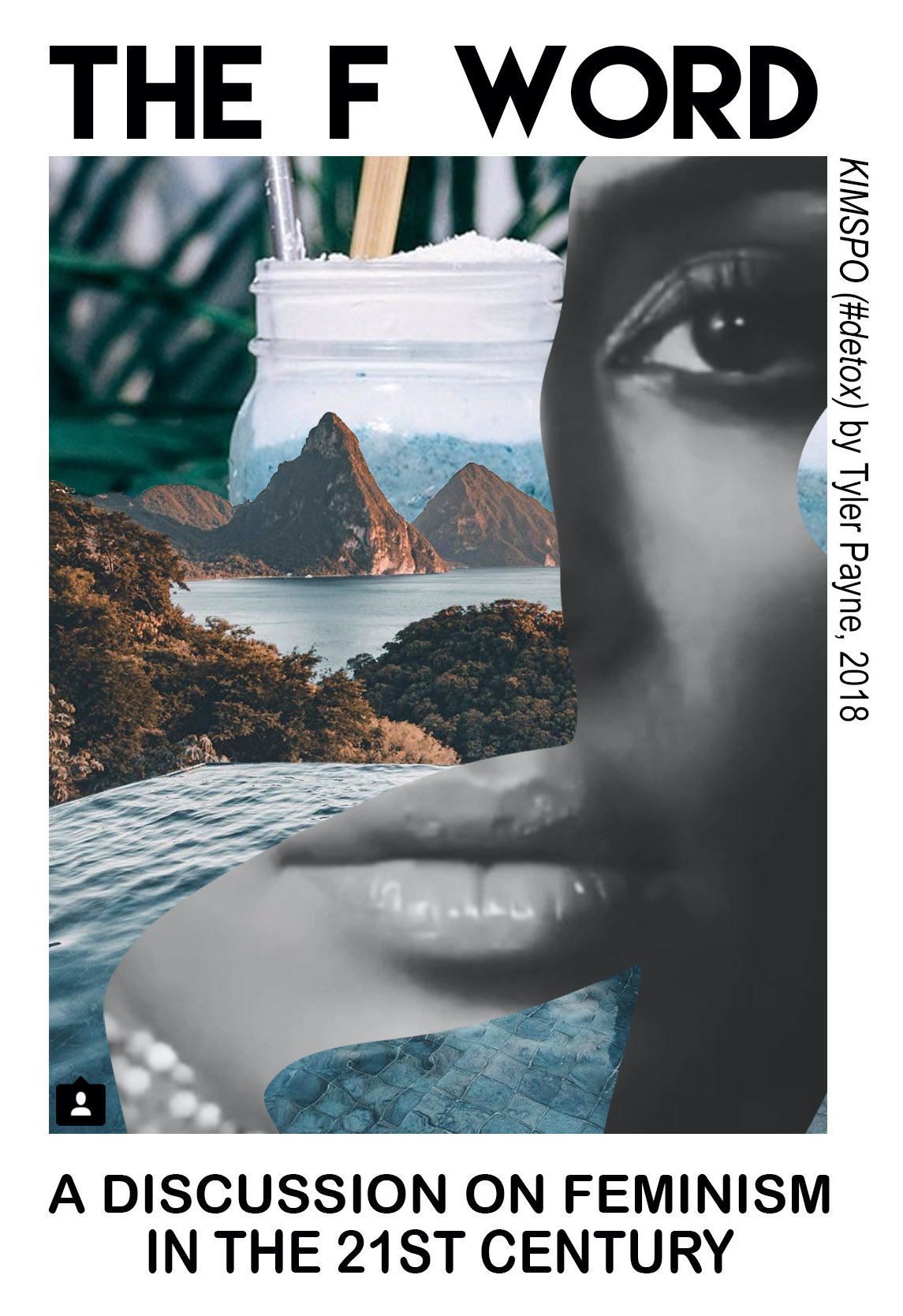
This project addressed a central problem: how can a women’s museum engage diverse communities and age groups in the twenty-first century, in the context of changing ideas of gender and feminism?
The basis for the Her Place Museum is the well-documented lack of representation of women in mainstream collecting institutions in Australia and in broader narratives of Australian history. To expand this understanding, RMIT researchers and students collaborated with Her Place and ran two workshops involving 40 key stakeholders. In these workshops, stakeholders developed engagement strategies for young people and people from CALD communities; a communication strategy for cross-generational dialogue; and recommendations for a digital platform.
If you would like to get involved with this project, fill out the form below or reach out to project leaders via the contact info provided alongside each bio.
People
Grace McQuilten
Senior Lecturer
School: School of Art
Grace is a published art historian, curator and artist with expertise in contemporary art and design, public art, social practice, social enterprise and community development.
Grace’s research challenges and transforms conventional understandings of the relationship between margin and centre in relation to the cultural economy, contemporary art practice and art history. She has pioneered work on the field of art-based social enterprise in Australia, and has worked extensively in migrant and refugee settlement. She has a multidisciplinary approach that engages with a range of fields including art, design, architecture, sustainability, sociology, business and international development. In addition, through her leadership of the CAST research group, she collaborates with industry and across disciplines to develop research projects that address issues of access, equity and justice.
Grace is a Chief Investigator on the ARC Discovery Project ‘The underworld: outsider artists and the reformulation of Australian art,’ (2018−2020) and the ARC Discovery Project ‘Art-based Social Enterprises and Marginalised Young Peoples Transitions,’ (2017−2019). She has published numerous articles in refereed and unrefereed publications, published creative works in literary journals, authored exhibition catalogues and worked as an editor on local newspapers and engaged widely with local and national media. Grace is the founding CEO & a current Board Director of The Social Studio, a fashion and art based social enterprise working with young people from humanitarian migrant backgrounds in Melbourne.
The Future of Museum Audiences I
Social Media, Digital Wayfaring and Museum Audiences
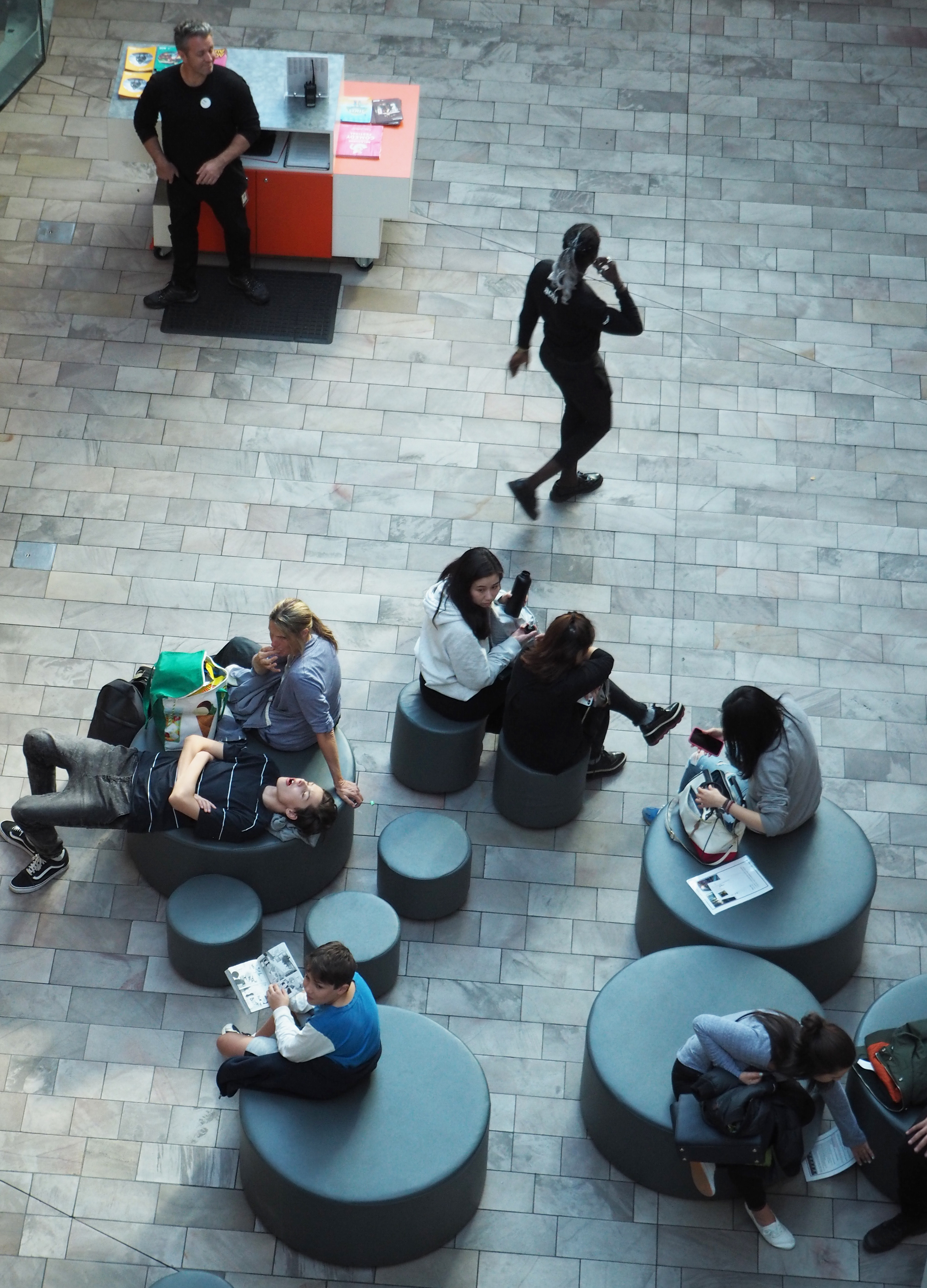
This project explored how museums can engage with social media platforms beyond the blunt instrumentalization of hashtags, likes and follows, to co-create and co-future inventive and responsive engagements with and for diverse and intergenerational museum audiences. Deploying the notion of digital wayfaring that acknowledges that digital, social and material worlds are interconnected, the project used ethnographic techniques in the context of the Australian Centre for the Moving Image (ACMI). Ethnography provides insight into practice and lived experience — dynamic processes that big data can’t address.
If you would like to get involved with this project, fill out the form below or reach out to project leaders via the contact info provided alongside each bio.
People
Larissa Hjorth
Distinguished Professor and Director, Design and Creative Practice
School: Enabling Capability Platforms
Larissa Hjorth is a digital ethnographer, artist, Distinguished Professor and director of the Design & Creative Practice ECP platform at RMIT University. With Professor Heather Horst, she co-founded the Digital Ethnography Research Centre (DERC). Previously, Hjorth was Deputy Dean, Research & Innovation, in the School of Media & Communication (2013−2016). Hjorth served on the inaugural Australian Research Council (ARC) Engagement & Impact Pilot study assessment panel for humanities and creative practice.
Hjorth studies the socio-cultural dimensions of mobile media and play practices in the Asia-Pacific region with an emphasis on interdisciplinary, collaborative and cross-cultural approaches. She has published a dozen co-authored books, edited over a dozen Handbooks/Companions and has over 40 journal articles.
More recently, Hjorth’s work has become concerned with how we can bring creative, social and design solutions to the growing ageing populations and, in turn, how we might consider scenarios of what it means to die well. She is also studying how our “more-than-human” companions can teach us about new media in everyday life. Hjorth’s last book, Haunting Hands (Oxford Uni Press) looked at how mobile media is being deployed in situations of grief and trauma, her previous book explored how art practice can teach us new acumen into the climate change debate.
Hjorth’s books include Haunting Hands (with Cumiskey 2017), Screen Ecologies (with Pink, Sharp & Williams 2016), Digital Ethnography (Pink et al. 2016) Mobile Media in the Asia-Pacific (2009), Games & Gaming (2010), Online@AsiaPacific (with Arnold 2013), Understanding Social Media (with Hinton 2013), and Gaming in Locative, Social and Mobile Media (with Richardson 2014).
Jacina Leong
PhD candidate
School: Media and Communication
Jacina Leong is an artist-curator and PhD candidate in the School of Media and Communications, RMIT. Her research explores critical-creative and careful curatorial approaches to social innovation practices by museums and galleries.
Over the past decade, she has worked in hybrid new media spaces, universities, national and international festivals, regional museums and galleries, libraries and schools — to vision and deliver a diverse range of trans-disciplinary engagement programs, via highly collaborative, experimental and site-responsive processes. Most recently, Jacina was curator for Robotronica, project lead and founding member of the Guerrilla Knowledge Unit, guest facilitator of the Future Innovators Summit (Ars Electronica Tokyo Initiative), and co-curator of the provocation, Curating In The Age of Automation (RMIT & Ritsumeikan University, Kyoto).
From 2012 to 2017, Jacina worked at The Cube (QUT), establishing the inaugural STEAM engagement program for school and university students, educators and pre-service teachers. This program involved key collaborations with local, national and international organisations including Ars Electronica, LEGO Education, and Brisbane City Council. She has also worked in public program development at the Ipswich Art Gallery, collaborative learning strategy in universities, gallery management at Jan Murphy Gallery, and was advisor to the inaugural Make Nice at VIVID Festival.
cohealth@365
Past, Present and Co-Futures
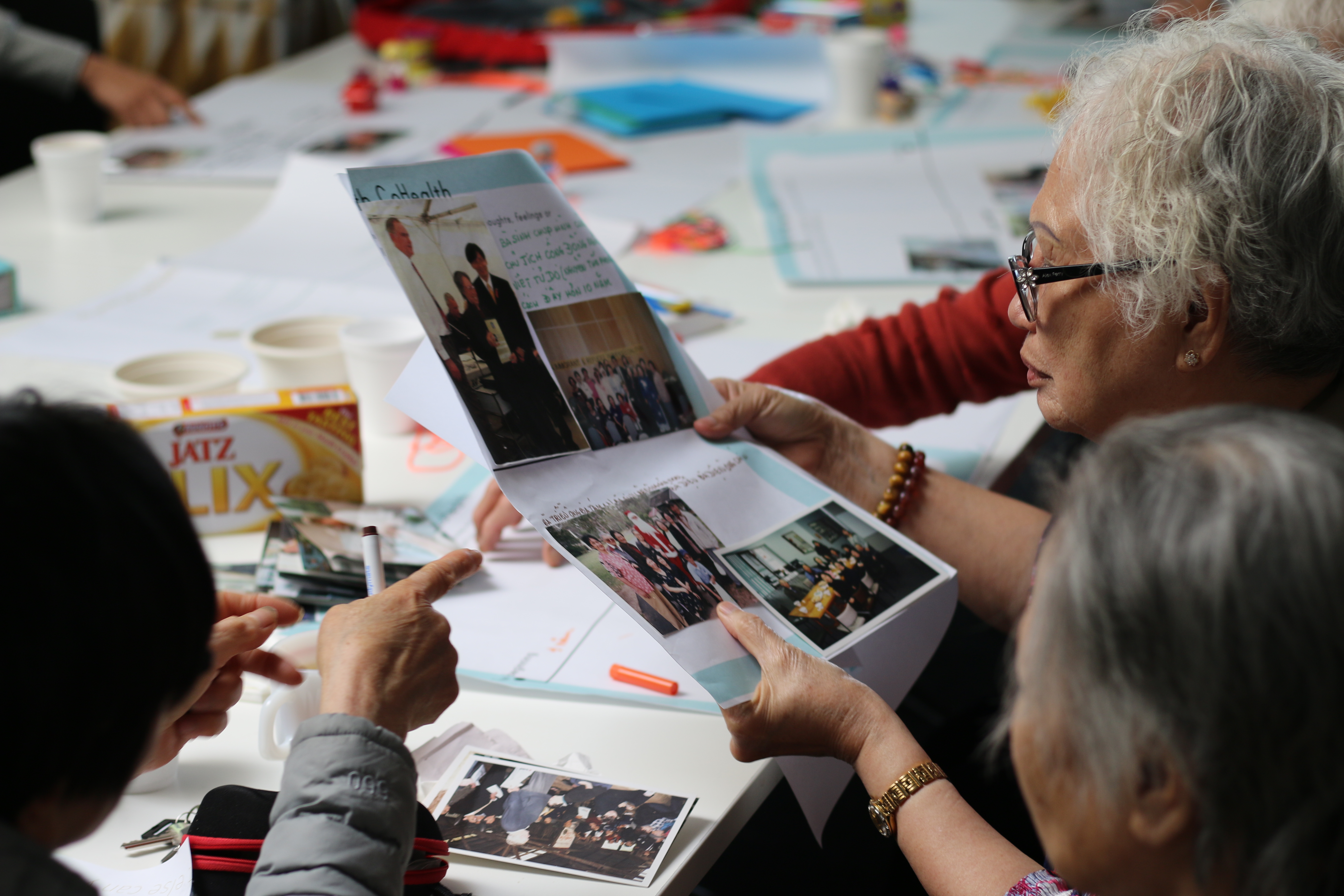
cohealth@365 brings together interdisciplinary methods and expertise to collect the diverse stories of a community. We co-created and co-designed with the cohealth Collingwood community to capture their stories and hear their voices as core to cohealth’s past, present and future. The different research activities included co-creative workshops, researching the archive, digital storytelling, ethnographic research, an interactive community chalkboard, multisensorial design and other creative activities.
This pilot project sought to empower the community by having their vision included as central to cohealth’s transition. Through this process, cohealth@365 provides a vehicle for community advocacy across a variety of key stakeholders and sectors.
If you would like to get involved with this project, fill out the form below or reach out to project leaders via the contact info provided alongside each bio.
People
Larissa Hjorth
Distinguished Professor and Director, Design and Creative Practice
School: Enabling Capability Platforms
Larissa Hjorth is a digital ethnographer, artist, Distinguished Professor and director of the Design & Creative Practice ECP platform at RMIT University. With Professor Heather Horst, she co-founded the Digital Ethnography Research Centre (DERC). Previously, Hjorth was Deputy Dean, Research & Innovation, in the School of Media & Communication (2013−2016). Hjorth served on the inaugural Australian Research Council (ARC) Engagement & Impact Pilot study assessment panel for humanities and creative practice.
Hjorth studies the socio-cultural dimensions of mobile media and play practices in the Asia-Pacific region with an emphasis on interdisciplinary, collaborative and cross-cultural approaches. She has published a dozen co-authored books, edited over a dozen Handbooks/Companions and has over 40 journal articles.
More recently, Hjorth’s work has become concerned with how we can bring creative, social and design solutions to the growing ageing populations and, in turn, how we might consider scenarios of what it means to die well. She is also studying how our “more-than-human” companions can teach us about new media in everyday life. Hjorth’s last book, Haunting Hands (Oxford Uni Press) looked at how mobile media is being deployed in situations of grief and trauma, her previous book explored how art practice can teach us new acumen into the climate change debate.
Hjorth’s books include Haunting Hands (with Cumiskey 2017), Screen Ecologies (with Pink, Sharp & Williams 2016), Digital Ethnography (Pink et al. 2016) Mobile Media in the Asia-Pacific (2009), Games & Gaming (2010), Online@AsiaPacific (with Arnold 2013), Understanding Social Media (with Hinton 2013), and Gaming in Locative, Social and Mobile Media (with Richardson 2014).
Julienne Van Loon
Senior Research Fellow, Design and Social Context
School: Media and Communication
+61 3 9925 9564
RMIT staff profile
julienne.vanloon@rmit.edu.au
Dr Julienne van Loon is a Vice Chancellor’s Senior Research Fellow with non/fictionLab, and a leading Australian novelist and essayist. Her first novel, Road Story, won The Australian/Vogel’s award in 2005 and was shortlisted for the WA Premier’s Award for Fiction and the Commonwealth Writers’ Prize Best First Book Award (Asia and Pacific). She has held residencies at various international arts organisations and universities, including the University of Iowa, where she was sponsored by the Paul and Hauling Engle Fund to take part in the International Writing Program in 2017. van Loon co-edits the leading scholarly Creative Writing journal TEXT, and is a peer-assessor for the Australia Council for the Arts. Her forthcoming essay collection, The Thinking Woman, includes interviews with key women thinkers from the Australia, Europe and the United States. Her scholarly research interests include the role of play in research and creative practice.
Jaz Hee-jeong Choi
Vice-Chancellor’s Senior Research Fellow
School: Design and Social Context
Dr Jaz Hee-jeong Choi is a Vice-Chancellor’s Senior Research Fellow at the Digital Ethnography Research Centre at RMIT. Previously, she was a Founding Member and the Director of the QUT Urban Informatics Research Lab, a transdisciplinary research group exploring and designing at the intersection of people, places, and technologies. She also founded the SIGCHI FoodCHI Network.
She is an advocate for transdisciplinary research, carefully balancing creativity and criticality. Her approach to urban sustainability recognises ‘play’ as the core of transformative interactions in cities as complex techno-social networks. She builds on this to explore how various forms of digital and playful experiences are designed and evolve in different cultural contexts. Her current research explores designing with and for care for liveable and equitable urban futures across three inter-related domains: wellbeing and ageing; impactful research methods, and; co-creative urban transformation.
She has collaborated with leading international researchers, published in books and journals across various disciplines, and given invited talks at major international conferences including the inaugural Global Social Economy Forum in 2013 and the opening keynote at the 2010 UNESCO Creative Cities Conference.
Son Vivienne
Postdoctoral Research Fellow
School: Education
+61 3 9925 4094
Personal website
son.vivienne@rmit.edu.au
Son Vivienne is a Post-Doctoral Researcher at Creative Agency and the Digital Ethnography Research Centre at RMIT. Their principal expertise is digital self-representation, online activism, queer identity, and rhetorical strategies/feminist practices for speaking and listening across difference. Son is also involved in community development and arts as an activist, workshop facilitator and media-maker. Son is author of Digital Identity and Everyday Activism: Sharing Private Stories with Networked Publics (Palgrave Macmillan) and co-author/co-editor of Negotiating Digital Citizenship: Control, Contest, Culture (Rowman & Littlefield).
Son curates several collective storytelling websites for queer and gender-diverse communities and has over twenty years of multi-media production and distribution experience. As an award winning writer/director/producer of drama and documentaries, they tackled subjects as diverse as youth suicide; drug cultures in Vietnamese communities; and lesbian personal columns. Their film work includes multi-lingual (Vietnamese-English and Adnyamathanha-English) and multi-modal (animation, micro-docs, digital storytelling and interactive web-platforms) projects that reflect their comparative, cross-cultural and critical approaches to communication and storytelling.
COVID frontlines in Australia and New Zealand
Processes, Practices and Perceptions

Australia and New Zealand have each enjoyed a high degree of success in managing outbreaks of COVID 19. Both countries have been early adopters of mask use and contact tracing. The COVID travel bubble organised between Australia and New Zealand speaks to the cultural proximity of the two countries and the shared approaches in tackling the pandemic.
This study seeks to interview participants from across Australia and New Zealand to record their shifting perceptions towards the infrastructural changes and biometrics brought by COVID-19. Specifically, we want to enquire about people’s perceptions and practices of:
• Masks and other PPE use
• Contact tracing via apps, QR codes, pen and paper
• COVID testing and temperature monitoring
• Vaccinations
Our aim is to record the experiences and conditions of participants in New Zealand and Australia to discover how new technologies and practices add new layers of both work and technological awareness to daily routines. We seek to reveal ways of improving techniques of technological delivery and the lives of people that these processes affect.
We welcome all participants and are very keen to hear from a diverse representation of people. We especially welcome older people as well as frontline and essential workers; individuals who, to perform their roles, come into direct contact with the public.
To participate just let us know at the GET INVOLVED link at the bottom of this page.
You can find support with issues related to COVID here if you are in New Zealand, and here if you are in Australia.
PARTICIPANT INFORMATION AND CONSENT FORM
If you would like to get involved with this project, fill out the form below or reach out to project leaders via the contact info provided alongside each bio.
People
Larissa Hjorth
Distinguished Professor and Director, Design and Creative Practice
School: Enabling Capability Platforms
Larissa Hjorth is a digital ethnographer, artist, Distinguished Professor and director of the Design & Creative Practice ECP platform at RMIT University. With Professor Heather Horst, she co-founded the Digital Ethnography Research Centre (DERC). Previously, Hjorth was Deputy Dean, Research & Innovation, in the School of Media & Communication (2013−2016). Hjorth served on the inaugural Australian Research Council (ARC) Engagement & Impact Pilot study assessment panel for humanities and creative practice.
Hjorth studies the socio-cultural dimensions of mobile media and play practices in the Asia-Pacific region with an emphasis on interdisciplinary, collaborative and cross-cultural approaches. She has published a dozen co-authored books, edited over a dozen Handbooks/Companions and has over 40 journal articles.
More recently, Hjorth’s work has become concerned with how we can bring creative, social and design solutions to the growing ageing populations and, in turn, how we might consider scenarios of what it means to die well. She is also studying how our “more-than-human” companions can teach us about new media in everyday life. Hjorth’s last book, Haunting Hands (Oxford Uni Press) looked at how mobile media is being deployed in situations of grief and trauma, her previous book explored how art practice can teach us new acumen into the climate change debate.
Hjorth’s books include Haunting Hands (with Cumiskey 2017), Screen Ecologies (with Pink, Sharp & Williams 2016), Digital Ethnography (Pink et al. 2016) Mobile Media in the Asia-Pacific (2009), Games & Gaming (2010), Online@AsiaPacific (with Arnold 2013), Understanding Social Media (with Hinton 2013), and Gaming in Locative, Social and Mobile Media (with Richardson 2014).
Hugh Davies
Postdoctoral Research Fellow
School: Games
Hugh Davies is an artist, curator and researcher of games and play. His practice explores histories of media devices and cultures of games in the Asia Pacific Region. Awarded a PhD in Art, Design and Architecture from Monash University in 2014, Hugh’s studies in game cultures have been supported with fellowships from Tokyo Art and Space, M+ Museum of Visual Culture and the Hong Kong Design Trust. Hugh is currently a postdoctoral research fellow at RMIT in Melbourne, Australia.
Ingrid Richardson
Professor
School: Media and Communication
Professor Ingrid Richardson has been teaching, supervising and researching in the fields of digital media, mobile media and games for over twenty years. She has a broad interest in the human-technology relation and has published widely on the phenomenology of games and mobile media, digital ethnography and innovative research methods, the relation between technology use and wellbeing, and the cultural effects of urban screens, wearable technologies, virtual and augmented reality, remix culture and web-based content creation and distribution. Ingrid has led or co-led 14 funded research projects, the most recent being an ARC DP [Games of Being Mobile] with Larissa Hjorth. She is contributing co-editor of Studying Mobile Media (Routledge, 2011) and co-author of Gaming in Social, Locative and Mobile Media (Palgrave, 2014), Ambient Play (MIT, 2020), Understanding Games and Game Cultures (Sage, 2020), Exploring Minecraft: Ethnographies of Play and Creativity (Palgrave, forthcoming), and Mobile Media and the Urban Night (Palgrave, forthcoming). Ingrid brings ten years’ experience in university-level HDR management and during this time has actively championed and supported creative methods and practice-led postgraduate research. Over the past five years she has also developed a passion for teaching critical web literacy skills to undergraduate students across all disciplines.
Mark Andrejevic
Professor
School: Media, Film, and Journalism
Mark Andrejevic (Professor, School of Media, Film, and Journalism, Monash University) contributes expertise in the social and cultural implications of data mining, and online monitoring. He writes about monitoring and data mining from a socio-cultural perspective, and is the author of three monographs and more than 60 academic articles and book chapters. He was the Chief Investigator for an ARC QEII Fellowship investigating public attitudes toward the collection of personal information online ($390,000; 2010 – 2014).
Andrejevic has experience conducting both quantitative and qualitative research and is experienced in the focus group and interview methodologies. His work on the personal information project, for example, generated a book, 11 articles and book chapters, and a report on Australian attitudes toward online privacy that was launched by the Federal Privacy Commissioner.
Ruth De Souza
VC Research Fellow
School: School of Art
Dr Ruth De Souza (FACN) is a Vice-Chancellor’s Fellow at RMIT, based in the School of Art and DCP Research Platform. She is a nurse, academic and a community-engaged researcher in gender, race, health and digital technologies. Ruth’s Fellowship will engage health professionals in finding new ways to understand, co-design and implement sustainable cultural safety initiatives in a range of health contexts in response to health inequities.
Prior to moving to Australia in 2013, Ruth worked at AUT University where she taught in the School of Nursing, led the Bachelor of Health Promotion, and was a Senior Research Fellow at the Centre for Asian and Migrant Health Research. Since her arrival in Australia, Ruth has undertaken a wide range of roles, including leading an undergraduate nursing program at Monash University’s Berwick campus; spearheading a unique community-engaged joint research appointment with North Richmond Community Health exploring how wearables and other digital technologies are perceived by people from culturally and linguistically different backgrounds and co-ordinating an interdisciplinary Data Systems and Society Research Network across the University of Melbourne. Ruth has also investigated the applicability of cultural safety in Australia, working closely with The Congress of Aboriginal and Torres Strait Islander Nurses and Midwives (CATSINaM), presenting at their National Professional Development Conferences and delivering training on cultural safety. She has also undertaken a two-year cultural safety project with cohealth (a not-for-profit community health organisation) and Our Watch who work for the primary prevention of violence against women and their children.
Audience Lab
Exploring the future of audiences and engagement in an age of big data and social media
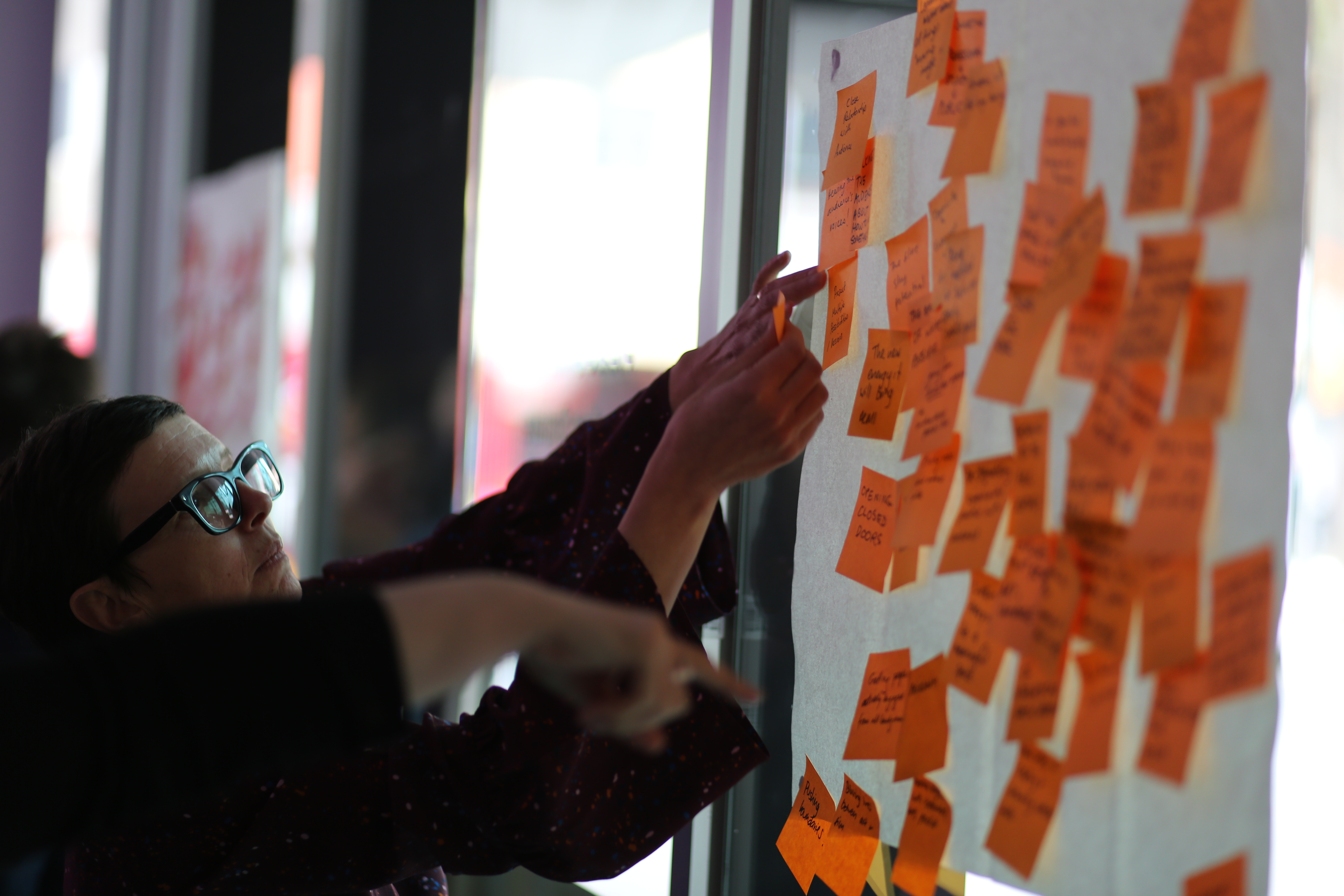
Cultural organisations — galleries, museums, archives and libraries — are designing new ways to engage with the public. Audience Lab brings together these institutional players with industry and academia to discuss the collaborative possibilities of a publicly-facing product testing ground for new ideas. Our focus lies in developing a Lab where industry can user-test ideas, publics can be introduced to the technologies employed in contemporary media creation and academics can interlace between both, to explore the larger questions facing the future of design and media.
If you would like to get involved with this project, fill out the form below or reach out to project leaders via the contact info provided alongside each bio.
People
Martyn Hook
Dean
School: Architecture and Urban Design
Dr Martyn Hook is Deputy Pro Vice-Chancellor Partnerships in the College of Design and Social Context at RMIT University in Melbourne, Australia. He also holds the position of Dean at RMIT’s School of Architecture & Design alongside his role as Professor of Architecture. In addition to his work at RMIT Martyn is a director of multi award winning iredale pedersen hook architects, a studio practice based in Melbourne and Perth dedicated to appropriate design of effective sustainable buildings with a responsible environmental and social agenda.
Hook has particular expertise in the implementation of strategic vision in creative practice and driving organisational change through the lens of an integrated scholarship model that links teaching and research. Prior to this appointment he was Acting Dean of the School of Architecture & Design and Acting Head of the School of Art.
News and updates
No results
People
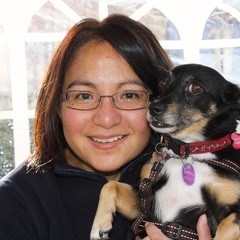
Catherine Gomes is an Associate Professor in RMIT University’s School of Media and Communication. Catherine is an ethnographer whose work contributes to the understanding of the evolving migration, mobility and digital media nexus. As a migration and mobility scholar, Catherine specialises on the social, cultural and communication spaces of transient migrants, especially international students, their wellbeing, their social groups and their digital engagements. Catherine’s work covers the themes of identity, ethnicity, race, memory and gender. She is a specialist on the Asia-Pacific with Australia and Singapore being significant fieldwork sites. Catherine has experience in mixed methods and interdisciplinary research.
Catherine’s work on transient migration and digital technology is advancing work on migration and mobility because of the transient-digital nexus she pioneers. Moreover, as founding editor of Transitions: Journal of Transient Migration Migration (Intellect), editor of the Culture, Media and Communication in Migrant Societies book series (Amsterdam University Press) and lab leader of the Migration and Digital Media Research Lab housed in the Digital Ethnography Research Centre (DERC), Catherine facilitates intellectual discussions with the aim of generating practical outcomes to address and assist policymakers and stakeholders interested in transient migration and international mobility.
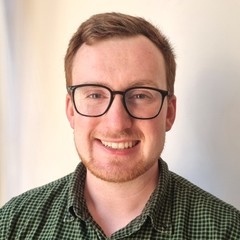
Currently undertaking a PhD in Design at RMIT School of Design, Jacob explores socially engaging technology in later life and its shaping by designers. Approaching design research through investigating the materiality of artifacts, and our interactions with them, Jacob seeks to uncover social-technical practices through dialogical and anthropological means.
Alongside his doctorate research, Jacob is involved in ‘Co-designing Participatory Strategies With Older Adults ‘ (Shaping Connections) and ‘Enabling an Ageing Workforce’ (Safeness by Design) research projects. As a sessional lecturer in Design Studies, Jacob hopes to foster research-led and collaborative design practices in socially complex contexts. With a diverse background in the design industry, he is interested in locating design research practice in wider discourses and interrogating its impact.
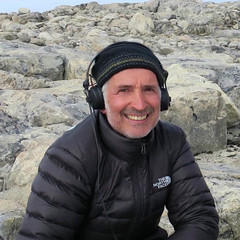
Philip is an Associate Professor within RMIT School of Art, and leader of the Sound Art and Audio Culture Lab.
Associate Professor Samartzis is a sound artist, scholar and curator with a specific interest in the social and environmental conditions informing remote wilderness regions and their communities. His art practice is based on deep fieldwork where he deploys complex sound recording technology to capture natural, anthropogenic and geophysical forces. The recordings are used within various exhibition, performance and publication outcomes to demonstrate the transformative effects of sound within a fine art context. He is particularly interested in concepts of perception, immersion and embodiment in order to provide audiences with sophisticated encounters of space and place. Philip is the recipient of three Australian Antarctic Division Arts Fellowships (2009, 2015, 2020), which he is using to document the effects of extreme climate and weather events in Eastern Antarctica, Macquarie Island, and the Southern Ocean over a 12-year period.
